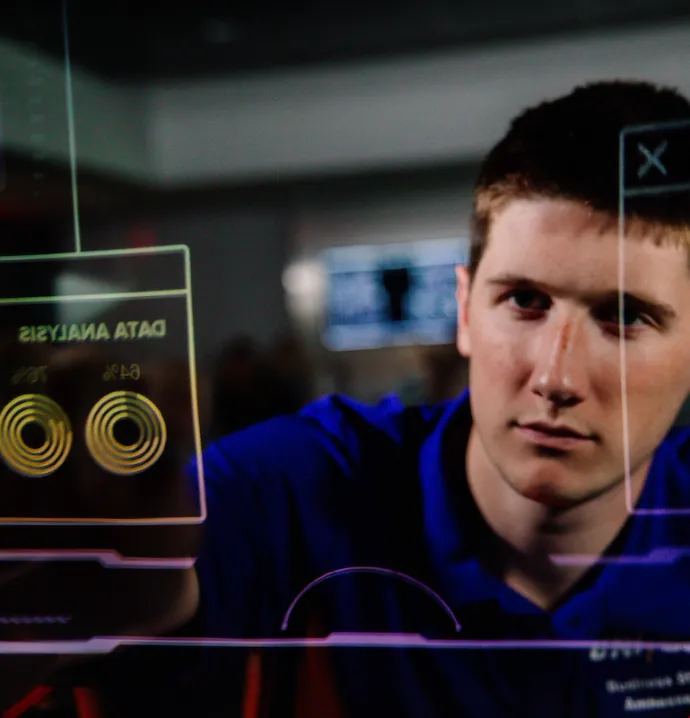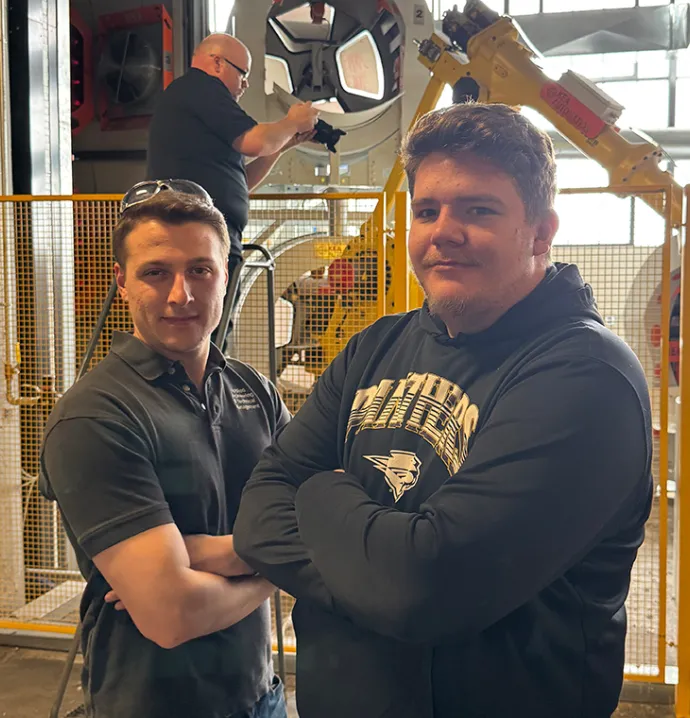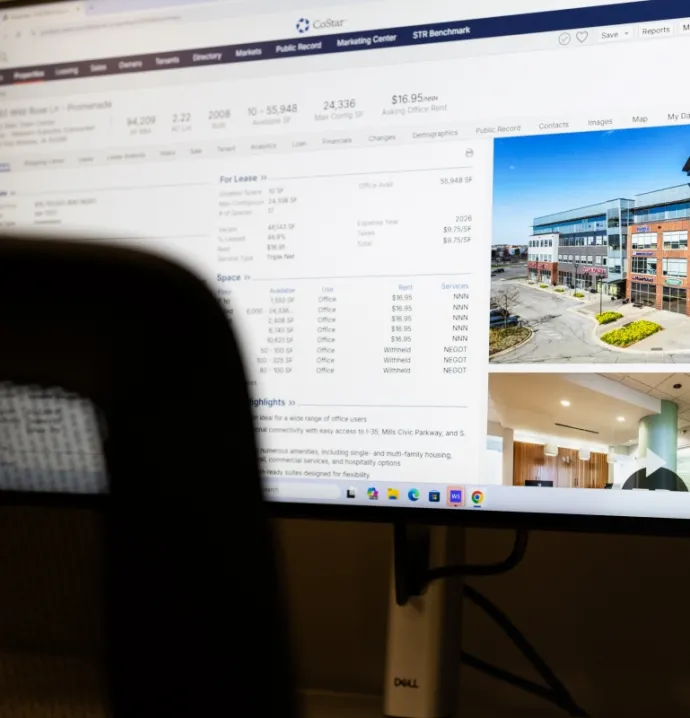UNI empowers entrepreneur’s impactful startup
UNI empowers entrepreneur’s impactful startup
Russel Karim has always loved adventure and the thrill of creating something new.
It’s what led the then-17-year-old to travel 12,000 miles sight unseen to the University of Northern Iowa from his home in Bangladesh. His dad mistakenly thought Karim was headed for Ohio, so a family member provided the teen a phone that didn’t work in the Cedar Falls area.
That first week in America, he lived off bread, orange juice and bananas. But Karim had finally arrived where he’d always wanted to be - a smaller, more supportive campus that was an ideal incubator for his dreams of creating successful businesses.
“I was very determined,” said Karim, 27, who now balances a job in UNI’s IT department with his role as an entrepreneur. “I wanted something different. It was a sense of adventure.”
By the time Karim graduated from UNI in 2015 with a degree in computer science and entrepreneurship, he had created several apps, including one to help venues improve concessions sales and services.
A year later, he used that food-industry knowledge to launch Cedar Valley Food Runner, a delivery service for restaurants. It launched in the midst of major reconstruction of University Avenue, a busy thoroughfare in the heart of Cedar Falls and Waterloo, and proved to be a godsend to small business owners there.
“He provided an additional revenue stream for these small restaurateurs to allow them to remain profitable,” said Laurie Watje, associate director of the John Pappajohn Entrepreneurial Center. “He was providing that delivery service for them when no one wanted to hurdle that mess of construction.”
When the service started, Karim thought college students would make up his customer base, but his clientele was from a much different demographic.
People living out-of-town who wanted to make sure their elderly parents had quality food products began turning to the service, said UNI Business and Community Services and JPEC Executive Director Randy Pilkington. The business expanded to St. Cloud, Minnesota, and Council Bluffs, Iowa, before being acquired last year by EatStreet, a Wisconsin-based app that has reportedly raised nearly $40 million in venture capital.
“He’s one of the most focused student entrepreneurs that we’ve ever had,” Pilkington said of Karim. “He always had ideas, and he learned to how to take that idea (and develop it) by working with Laurie and the John Pappajohn Entrepreneurial Center. He’ll be an entrepreneur and a real asset to this region for many years to come.”
Karim recently was awarded the national Outstanding Immigrant Business Award at the Immigrant Entrepreneurs Summit in recognition of the businesses he started while at UNI.
“UNI and the John Pappajohn Center really nurtured me to have that entrepreneurship to start a business in the U.S.,” Karim said. “I wouldn’t be where I am without JPEC.”
Karim drew inspiration from home for his next venture, which he hopes will have an even bigger impact.
The apparel industry is the backbone of Bangladesh’s industrial sector. Several third parties have complicated the supply chain, Karim said, cutting into factories’ profits and limiting workers’ salaries overseas.
“I didn’t feel that was ethically right, and I wanted to do something,” Karim said. “The way every scalable business works is figuring out ‘How can we streamline the process – directly connect the people who don’t have the power with the consumer and end user and cut the people in the middle who are extracting the money and taking advantage of those two parties?’”
Research at trade shows and interviews with big-name labels like Nike and Adidas helped Karim understand how the supply chain works for large retailers as well as small companies with limited resources.
Last March, Karim formed Dhakai.com - a reference to his hometown of Dhaka - to connect buyers with factories more directly in order to cut down on distributors' costs for the product and provide factories a higher profit. The first version of the Dhakai app is scheduled to launch in February, and so far 50 Bangladeshi manufacturers are included in the network, Karim said.
He’s turning to highly skilled UNI graduates to help grow the business, which now employs seven people. Just days after graduating from UNI last month with a degree in textiles and apparel, Taylor Hauser is now running the company as Dhakai’s first full-time employee. Karim hopes to hire more UNI grads, trusting that his own tireless efforts paired with highly-skilled workers will make his business a success.
“I don’t sleep, and I bring the right people in,” Karim said. “For me, it’s like: Can I bring in the right people and empower them so they can do their best? Can I bring the best out of them, and ultimately, that is going to benefit the business as a whole.”
The business has also rolled out a website that features virtual tours and storytelling to introduce the factories to potential buyers in the United States. A partnership with a nonprofit in Bangladesh is helping collect data from factories and conducting audits.
“Some of the factories are made up of 100% female workers,” Karim said. “I think that’s a story to tell. A boutique may not only sell a product, they sell a story. This is the platform that we created that enables U.S. buyers to tell a story on where the product is coming from.”
Initially, factories and smaller buyers will be paired manually, Karim said. Soon buyers will be able to search factories with filters, including sustainability and quantity factors. Once a buyer finds the factory that fits the criteria they expect, the two parties can communicate directly and follow the process from creation to shipping and delivery, he said.
Associate director of international recruitment Kristi Marchesani introduced UNI to Karim at a recruitment fair in Dhaka, Bangladesh’s capital city. Rather than dropping off his UNI application at the front desk for Marchesani, Karim waited hours to hand them over in person.
“From the get-go, you could tell Russel was someone who was motivated, who had goals, and he was going to make sure he was going to do everything possible to reach those goals,” Marchesani said. “He obviously felt like UNI was the place to take the steps toward that.”
“I looked at the small campus and the support I received even before I came in, and it just felt like they really do care,” Karim said of his decision to come to UNI.
“He’s also one of the most coachable students we’ve ever had,” said Pilkington. “He absorbed it. He soaked it all in. He allowed Laurie (Watje) to guide him. So when you coach someone, and they follow through, it makes it very rewarding.”
Watje said you can tell Karim loves being here.
“He’s continuing to a part of our program and giving back and mentoring other students, especially in the IT area,” she said. “He’s been a real asset to the university and to the entrepreneurial ecosystem here in the Cedar Valley. We’re very lucky to have him.”




